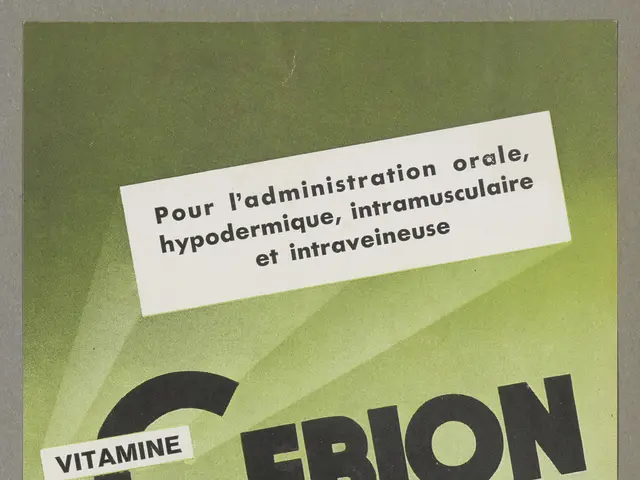The Cicada Crisis Strikes Hessen's Farms
Encroaching pest poses danger to Hessian crop yield - Pests protected by legal measures pose a threat to crops in Hesse region.
Hessen's farmers are in a pickle. The reed glass-winged cicada (Pentastiridius leporinus) is causing a mess, spreading bacteria that wreaks havoc on potatoes, sugar beets, and other crops. The Ministry of Agriculture admitted in a response to an AfD minor interpellation that the current potato production in Hessen is almost nil. Sugar beets aren't faring much better, with beets, carrots, and onions also vulnerable.
South Hessen: Ground Zero
According to the Hessian Plant Protection Service, the affected regions are mainly in southern Hessen, including the districts of Groß-Gerau, Darmstadt-Dieburg, Bergstraße, and Odenwaldkreis. Specialists spotted the first infestation in 2018, and since then, the cicada has been on a rampage, moving northward, according to Dominik Dicke, the responsible official for the department of warning service and pest monitoring. The Hessian Farmers' Association echoed this, stating, "South Hessen up to the Main line, we have the hotspot region in Hessen." The severity of the damage varies depending on the extent of the infestation. Potatoes may face total loss as they no longer meet quality standards, while sugar beets become rubbery at the tips, losing yield and sugar content.
Protected but Fighting Back
The issue: The reed glass-winged cicada is considered endangered in the German Red List. Despite their origins in natural, wet environments like reeds, they remain scarce there, according to the Ministry of Agriculture. Dicke believes the cicada should be removed from the Red List.
The Hessian Agency for Nature Conservation, Environment and Geology (Hlnug) listed the reed glass-winged cicada as endangered on the nationwide Red List of cicadas in 2016. This list is periodically updated, but any potential reclassification or removal of a species only occurs during the update of a Red List.
The Great Escape
There's some speculation about how the cicada ended up in the fields. Dicke explains there are only theories about this. One theory is that with its natural habitat dwindling, the cicada seeks out new areas. Another theory revolves around the disease-causing agents carried by the cicada; they could aid the cicada in digesting certain substances, making new plant species more tolerable.
According to the ministry, the current mass reproduction in agricultural cultures is a recent development due to an adaptation to changed habitat conditions. The farmers' association suspects that climate change may have played a role in the cicada's stronger spread.
The Warning Source
So, how do you deal with a protected pest? Farmers can use certain insecticides with an "emergency approval," but only if the Hessian Plant Protection Service has issued an official warning service announcement. To trigger this, there must be evidence of an increasing infestation of cicadas in a specific region where damage has occurred in previous years. Employees distribute sticky traps across the fields on a weekly basis, collect them, and bring them to the lab in Wetzlar to be counted. If the catch numbers are rising, a warning service call is issued. On May 23, a warning service call was issued for the hotspot region in South Hessen.
Chemistry Ain't Enough
Insecticides are a crucial yet limited tool in controlling cicadas, according to the ministry. Plant protection expert Dicke also agrees that chemistry alone isn't enough to contain the pest - let alone eradicate it.
Researchers at the Julius Kühn Institute - the federal research institute for cultivated plants - have compared various insecticides and found that their use can reduce infestation, but it isn't enough to effectively address the complex epidemiological situation.
Beyond Chemicals
A multi-faceted approach is necessary, says Dicke. Ideas include searching for resistant varieties, starving or undermining the larvae after harvest, crop rotation, and soil tillage. However, there are still no definitive solutions in some areas, and further research is needed.
Innovative methods for controlling the ricegrass leafhopper are being researched, such as RNA interference technologies, insect-damaging fungi, and "natural enemies." To bring new, biological approaches onto the field as quickly as possible, licensing and approval procedures are being streamlined.
Hesse, Potatoes, Cicada, Harvest, South Hessen, Agriculture, Pest, Bacteria, Wiesbaden, BMELV, AfD, Beetroot, Groß-Gerau, Darmstadt-DIEBURG, Odenwaldkreis, Infestation, Germany.
- Reed glass-winged cicada: The expansion of the reed glass-winged cicada and its relationship to climate change and habitat loss are influenced by factors such as habitat loss, climate change, ecological adaptation, and human activity. These factors can force species like the reed glass-winged cicada to adapt by moving into new areas, such as agricultural lands.
- The expansion of the reed glass-winged cicada, a species endangered in Germany, is associated with factors such as habitat loss, climate change, ecological adaptation, and human activity, which may compel them to seek new habitats like agricultural lands.
- A multidisciplinary approach is necessary to manage the cicada infestation in Hesse's farms, involving strategies such as researching resistant crop varieties, starving or undermining the larvae after harvest, crop rotation, soil tillage, and exploring novel biological approaches like RNA interference technologies, insect-damaging fungi, and "natural enemies."




